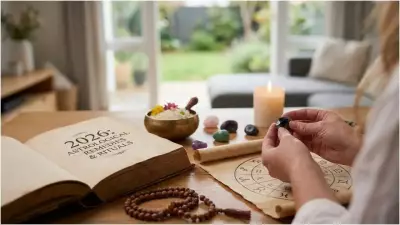
As wedding season reaches its peak in Jalandhar, residents are raising their voices against an unexpected problem - the deafening sound of celebrations that continues late into the night. The city finds itself caught between traditional festivities and modern urban living, with noise pollution emerging as a major public health concern.
The Rising Decibel Levels in Residential Areas
During a recent open house discussion organized by The Tribune, citizens from across Jalandhar shared their distressing experiences with uncontrolled noise pollution. Residents reported sound levels frequently exceeding 100 decibels during wedding processions and functions, far beyond the permissible limits set by environmental regulations.
The problem becomes particularly acute during evening hours when loud music from wedding venues disrupts sleep patterns and daily routines. Elderly citizens and young children face the most severe impact, with many experiencing sleep deprivation and stress-related health issues. Students preparing for examinations find it nearly impossible to concentrate amid the constant barrage of noise.
Legal Framework and Enforcement Challenges
According to existing regulations, the permissible noise limit for residential areas during night hours (10 PM to 6 AM) is 45 decibels, while commercial areas can go up to 55 decibels. However, wedding celebrations routinely violate these limits, with authorities struggling to implement effective enforcement measures.
Local residents pointed out several practical difficulties in controlling noise pollution. The transient nature of wedding processions makes it challenging for law enforcement to respond in time. Many venue owners and families organizing weddings remain unaware of the specific noise regulations, while others deliberately ignore them in the name of tradition and celebration.
Community Proposals for Sustainable Solutions
During the open house discussion, several constructive suggestions emerged from concerned citizens. Many advocated for stricter enforcement of existing noise control laws with heavier penalties for violations. Others recommended creating designated wedding zones away from dense residential areas where celebrations could continue without disturbing the general public.
The community also proposed innovative approaches such as promoting indoor wedding venues with proper soundproofing, encouraging the use of lower-volume sound systems, and setting specific time restrictions for loud music. Some suggested that wedding planners and venue owners should be required to obtain noise pollution clearance certificates before organizing large events.
Educational campaigns aimed at raising awareness about the health impacts of noise pollution received strong support. Residents believe that when families understand how excessive noise affects children's development, elderly health, and overall community wellbeing, they might voluntarily adopt quieter celebration methods.
The Health Impact of Constant Noise Exposure
Medical experts have repeatedly warned about the serious consequences of prolonged exposure to high noise levels. Noise pollution can lead to hearing impairment, hypertension, heart disease, and sleep disturbances. The psychological effects include increased stress levels, reduced cognitive performance, and general irritability.
In Jalandhar's case, the problem becomes seasonal but intense, with the wedding period creating what health professionals describe as 'acoustic trauma' for sensitive individuals. The cumulative effect of weeks of disrupted sleep patterns takes a significant toll on public health, particularly affecting vulnerable groups like infants, the elderly, and those with pre-existing health conditions.
As the debate continues, Jalandhar stands at a crossroads between preserving cultural traditions and protecting public health. The solution likely lies in finding a middle ground where celebrations can continue without compromising the wellbeing of the larger community. With wedding season becoming increasingly longer and more elaborate each year, the urgency for effective noise management strategies has never been greater.





